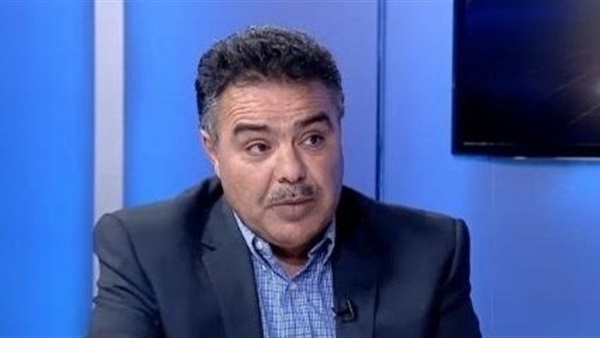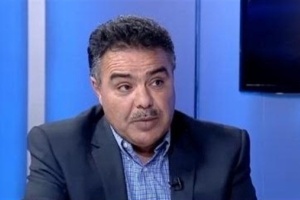By Abdullah Al-Kabir, a Libyan writer
About Tunisian coup and return of Saif Gaddafi

The end of July has carried two surprises. In fact, the element of surprise was not present in the full sense of the word, because what happened was expected by those who followed the course of political developments in the Arab region.
The first is the Tunisian president’s coup against the constitution, the dissolution of the government, the freezing of the House of Representatives, the tightening of its grip on all executive, legislative and parliamentary powers, and the initiation of a new phase in Tunisia in which democracy is set back and the face of tyranny is back. But what is not expected in this coup is the bias of the army, and its implementation of the president’s exceptional decisions, by preventing the speaker and members of the House of Representatives from entering the parliament’s headquarters. The Tunisian army has always distanced itself from political affairs and refused to suppress the revolution. Rather, it intervened to protect the demonstrators from the repression of the security services. It did not respond to all calls and pressures to intervene in the political crises that afflicted the country after the revolution. This shift in the position of the army should raise concern, because it has become a partner in managing state affairs, and its next step may be to remove the president and rule the country directly, or to exercise governance indirectly, keeping the president as a civilian front, if the authoritarian ambition of his leaders grows. The developments will be open to all scenarios, and what will determine the course of these developments and outcomes are the positions of the main political forces and well-established civil society organizations such as the Labor Union, and international positions, which have so far been dominated by appeasement and compromise and lacked firmness in aligning with democracy. The decisive factor is the position of the people and their movement after the euphoria of hope for an improvement in the situation has faded. The accumulated crises cannot be solved or mitigated by the coup, and then those who danced and rejoiced in the coup will wake up to the impact of disappointment as soon as the threads of the deception become clear to them, and their return to demonstrate and protest will stop at the level that the revolutionaries will allow. Whoever squandered his freedom has only himself to blame.
The other event that came as a surprise, was the journalistic appearance of Saif Gaddafi after years of hiding and concealment, deliberately in this long absence, to stir up ambiguity and speculation about his fate, leaving rumors of his death circulating among the people, but the majority of the political class knows that he is alive, and he lives somewhere in Zintan, therefore this appearance was anticipated, which came through a long article in the New York Times by journalist Robert Worth.
There is no room here to analyze the article and the positions and visions it contained of the young Gaddafi. The most important thing is the impact of this return on the political scene, and the position of the remnants of his father's regime supporters from his desire to return to political life, and his presentation of himself as a potential president for Libya in the next stage through the election gate.
The news of Saif’s appearance did not receive what he expected from the attention and reactions, regardless of whether it was welcoming or disapproving. The prolonged absence reflects the desire to mobilize for a moment of appearance that comes like a thunderbolt, such as the moment of the star’s appearance on a stage full of an audience eager for its appearance, or as the moment of the appearance of the Imam of time to the believers who oppressed the enemies with tyranny and oppression, it must provoke a lot of noise and disturbances, and even earthquakes and hurricanes. Therefore, young Gaddafi will recalculate on the impact of the disappointment he suffered, as he sees the news of his appearance next to his mysterious image, following the news of the opening of the road between Misurata and Sirte, and a few dozen demonstrations in unimpressive cities that shout old chants.
Perhaps Saif’s appearance revives hope in the hearts of supporters of his father’s regime as a symbol from the past who rally around him, after their horrific disappointment in Haftar, who used them for his authoritarian plot without gaining anything, and the dream of their celebration of returning in Tripoli Square turned into a nightmare in the deserts of Sirte, after an amazing tactical withdrawal. “It is expected to become a curriculum in the most prestigious military academies”, as Al-Mismari predicts. But it will be difficult to bring them together in one entity that parallels the other forces in the political-military arena. During the years of his absence, much water flowed into the Libyan river. Alliances were made and ended, small and big wars broke out and ended, attitudes changed according to the variables, governments went and others were formed, and international and regional powers penetrated the course of the conflict. The figures affiliated with the Gaddafi regime were not immune to the running waters of the river.
When Saif led the reforming project under the banner of “Libya of Tomorrow”, he sang a lot about democracy, and sent great hope in the hearts of those who aspired to it, but he failed at the revolution test, when the moment was ripe to present himself as a possible alternative to change, he preferred the approach adopted by his father, relying on violence and repression to abort the revolution. Will he find a role for him in a different stage that goes beyond his old desires and aspirations? Or will instinct lead him to the anti-change forces’ front, to go to a tragic end like the heroes of ancient myths when wisdom fails them? The writer says in his article: "Saif al-Islam is still the same immature person as he was ten years ago. He has learned nothing from his years in the wilderness."
Appearing in an American newspaper did not come randomly or because of the newspaper’s fame and its proximity to decision-making circles, but rather to convey a message to leaders in the capital of the international decision that they are ready for dialogue and cooperation, turn the page on the past, and launch a new beginning free from past mistakes and transcending desires for revenge.
Anyway, whether in Tunisia, Libya or the rest of the Arab Spring countries, just as the revolution did not resolve its victory over the forces opposed to change, these forces also did not resolve its victory, so it cannot be accepted that this or that is the final round. In the stages of historical transformation, the conflict prolongs through many rounds, and all revolutions are exposed to setbacks. The revolutionary curve does not go upward until it reaches the peak of the summit, but sometimes descends until it almost touches the horizontal x-axis.
The great philosopher, Immanuel Kant wrote in his important book “What is Enlightenment” that if a revolution is enough to end the oppression practiced by a tyrant, then society does not become enlightened and liberated only gradually, and slowly unless people are accustomed to thinking for themselves and for themselves, they will remain like puppets in the hands of new rulers who will replace the deposed tyrant. Therefore, what is important is to establish the most innocent freedom. Freedom for a person to reason things in his head.
Disclaimer: The views and opinions expressed in this article are those of the writer, and do not necessarily reflect those of the Libya Observer


